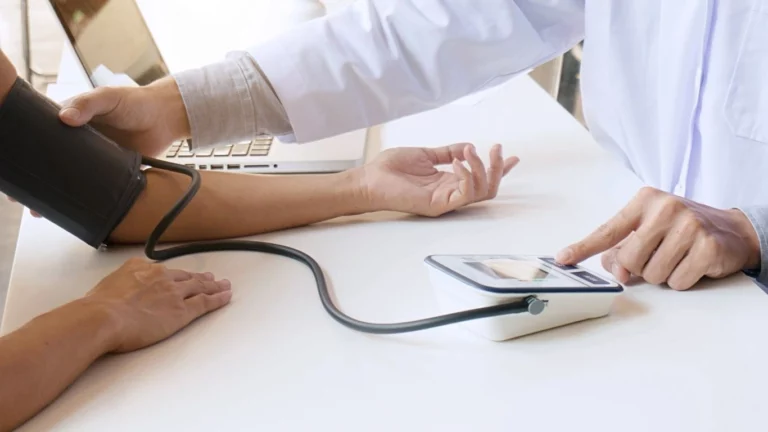Is Fasting Safe with GERD? – A Practical Guide to Managing GERD During Fasting
Have you ever wondered if skipping meals or practicing intermittent fasting could either soothe or stir up your acid reflux? I know I did — and honestly, back when I first tried intermittent fasting during a busy workweek, I thought giving my digestive system a break would mean fewer flare-ups. Turns out, it’s not that simple! Fasting with GERD can be a double-edged sword, depending on how you approach it, what you eat when you break your fast, and how your body reacts. Let’s unpack everything you need to know so you can fast safely without turning your stomach into a battleground.
Understanding the Connection Between GERD and Fasting

First, let’s break down what happens in your digestive system during fasting. When you go long periods without eating, your stomach continues to produce acid even if there’s no food to digest. This acid can irritate your esophagus, especially if your lower esophageal sphincter (LES) — the muscle that keeps stomach contents from backing up — is weak or relaxed. That’s why some people find fasting makes their acid reflux worse, not better.
But it’s not all bad news: research suggests that carefully timed intermittent fasting may actually reduce body weight, lower abdominal pressure, and improve GERD symptoms for some individuals (NCBI study on fasting and metabolic health). From my personal experience, I noticed that shortening my eating window to 8 hours helped reduce late-night reflux episodes — but only when I avoided trigger foods and kept portions reasonable.
Potential Benefits of Intermittent Fasting for GERD Sufferers

When done thoughtfully, intermittent fasting can offer several benefits:
- Weight management: Losing even a few pounds can decrease pressure on your abdomen, which may lessen acid reflux frequency. If you’re curious about how weight affects GERD, check out this guide on weight management for acid reflux relief.
- Meal timing awareness: Fasting encourages a more structured meal schedule, which can help you avoid late-night snacking — a major reflux trigger.
- Reduced inflammation: Studies indicate fasting might lower systemic inflammation, potentially calming an irritated esophagus (Mayo Clinic on intermittent fasting).
That said, it’s crucial to remember that GERD isn’t the same for everyone. While one person might thrive with time-restricted eating, another could experience more frequent or intense symptoms.
Risks of Fasting When You Have GERD

Let’s be real — fasting isn’t a one-size-fits-all solution. Here’s what can go wrong if you don’t plan carefully:
- Increased stomach acid: An empty stomach with ongoing acid production can irritate your esophagus, especially if you lie down or bend over during fasting periods.
- Breaking your fast with trigger foods: Greasy meals, caffeine, or large portions can overwhelm your digestive system and spike acid production. It’s why I always break my fast with a small GERD-friendly meal — usually oatmeal or a smoothie.
- Blood sugar swings: For some, especially those with diabetes or hypoglycemia, fasting can cause dangerous drops in blood sugar, which may worsen nausea and reflux-like symptoms.
There’s also evidence linking prolonged fasting with increased gastric acid secretion, which can exacerbate esophageal irritation in GERD patients. To learn more about potential complications, you might find this resource on untreated GERD complications helpful.
Best Practices for Safe Fasting with GERD

From my own trial and error (and more heartburn episodes than I’d like to admit), here are some tips to fast without wreaking havoc on your GERD:
- Choose the right fasting window: Shorter intermittent fasting windows like 12-14 hours may be gentler on your digestive system compared to 16+ hour fasts.
- Hydrate mindfully: Drink plenty of water, but avoid gulping large amounts at once or drinking carbonated beverages that increase bloating and reflux risk.
- Break your fast gently: Start with low-acid, GERD-friendly foods like oatmeal, bananas, or smoothies. I’ve found this helps me ease back into eating without triggering symptoms.
- Stay upright after meals: Give your stomach time to digest and reduce reflux risk by waiting at least 2-3 hours before lying down.
For a complete guide on making dietary changes to manage your reflux, don’t miss the comprehensive GERD diet plan — one of the best resources for choosing meals that won’t come back to haunt you later.
Listening to Your Body and Working with a Professional

If you notice your symptoms worsening when you start fasting, don’t ignore them. GERD can cause serious complications if left unmanaged, and while I’m sharing what worked for me, everyone’s digestive system is unique. Always talk with your doctor or a registered dietitian before beginning any new eating pattern. They can help tailor a fasting approach that considers your medical history and current symptoms.
For an overview of GERD symptoms to watch for — so you can act early and avoid complications — take a look at this detailed guide on GERD symptoms you shouldn’t ignore.
What to Eat When Breaking a Fast with GERD

Breaking your fast the right way can make or break your GERD management. I used to think any meal was fair game after a fast — big mistake! Now, I always aim for meals that are easy on my stomach and low in fat and acid. Some of my go-to options include:
- Oatmeal with almond milk: Soothing and filling without heavy fats.
- Bananas: Naturally low in acid and easy to digest.
- Steamed veggies: Carrots, zucchini, and green beans are great choices that won’t trigger reflux.
- Lean proteins: Think skinless chicken or baked fish in small portions.
Avoid foods high in fat or spices when breaking your fast — they’re almost guaranteed to cause discomfort. If you need inspiration for GERD-safe meals, I highly recommend exploring these GERD-friendly breakfast ideas for safe and satisfying options.
Foods and Drinks to Avoid While Fasting with GERD

Even if you’re careful with your fasting schedule, certain foods can sabotage your efforts. Through a lot of uncomfortable trial and error, I learned these foods were my worst enemies during and after fasting:
- Caffeine: Coffee and some teas relax the LES and stimulate acid production.
- Spicy foods: Even a small amount of chili can trigger painful heartburn.
- Citrus fruits and juices: Their high acidity can irritate your esophagus immediately.
- Chocolate: Sadly, it’s a double whammy — high fat and compounds that relax the LES.
- Carbonated drinks: They cause bloating, increasing pressure on your LES and making reflux more likely.
Cutting back on these can make a huge difference. I’ve personally noticed that avoiding chocolate and late-day coffee made my fasting experience significantly more comfortable.
Timing Matters: Planning Meals to Minimize GERD Symptoms

One of the biggest game-changers for my GERD during intermittent fasting was meal timing. Here’s what worked for me:
- Eating my last meal at least 3 hours before bed — this gave my stomach time to empty and reduced nighttime reflux.
- Spacing meals evenly during my eating window instead of cramming everything into one or two huge meals.
- Being consistent: same eating and fasting times each day to help my digestive system adjust.
According to the Cleveland Clinic’s guidance on GERD management, avoiding late-night eating is a key step to preventing reflux, especially if you struggle with nighttime symptoms.
Adjusting Fasting Plans Based on GERD Severity

Fasting isn’t a “set it and forget it” approach. Depending on how your GERD symptoms behave, you may need to make changes:
- Mild symptoms: You might be able to fast for 12-14 hours without significant issues, especially if you avoid trigger foods.
- Moderate symptoms: Consider shorter fasting windows or fasting every other day, paired with extra caution around meal choices.
- Severe symptoms: It’s often best to avoid fasting entirely until your GERD is under control with diet, lifestyle changes, or medication.
If your symptoms worsen or you notice alarming signs like difficulty swallowing, unexplained weight loss, or chest pain, stop fasting and contact your healthcare provider immediately. Ignoring these could lead to serious complications. For a better understanding of GERD severity, this guide to the 4 stages of GERD can help you identify where you stand and what actions to take.
When Fasting Might Not Be Right for You

Sometimes, it’s better to skip fasting altogether, especially if you:
- Have a history of ulcers or severe gastritis — fasting may irritate your stomach lining further.
- Experience frequent, severe GERD symptoms despite lifestyle adjustments.
- Are pregnant or breastfeeding, when nutritional needs and meal timing are more important for you and your baby.
- Have medical conditions like diabetes requiring careful blood sugar management.
In these cases, you may benefit more from traditional small, frequent meals instead of extended fasting. For a deeper dive into effective GERD treatments beyond fasting, explore these proven GERD treatment options that can help you find lasting relief.
Long-Term Strategies for Managing GERD with or without Fasting

Whether you choose to continue intermittent fasting or not, lasting GERD relief comes down to adopting habits that support your digestive health. Over the years, these daily strategies have helped me cut down on flare-ups dramatically:
- Keep a food journal: Tracking what you eat and when you experience symptoms can help you pinpoint triggers faster than guessing.
- Maintain a healthy weight: Even modest weight loss can relieve pressure on your LES and reduce reflux frequency.
- Elevate your head while sleeping: I added a wedge pillow under my mattress, and it made a world of difference for nighttime heartburn.
- Quit smoking: If you smoke, quitting can significantly strengthen your LES and improve overall digestive health.
- Manage stress: Stress can worsen GERD symptoms by increasing stomach acid production and affecting your eating patterns. Meditation, yoga, or simple deep breathing exercises can help.
For more on adjusting your lifestyle to keep GERD under control, check out these GERD lifestyle changes that really work.
Key Questions to Ask Your Doctor Before Starting Fasting

Before jumping into any fasting regimen, make sure to consult your healthcare provider and discuss questions like:
- Is fasting safe given my GERD severity and any other medical conditions I have?
- What signs should I watch for that indicate fasting is worsening my GERD?
- How can I adjust my diet to balance fasting and GERD symptom management?
- Do I need medications, and how should I take them if I’m fasting?
Working with your doctor can help you tailor an approach that fits your unique needs and lifestyle — and ensures your GERD doesn’t go unchecked.
Building a GERD-Friendly Fasting Routine

Once you get the green light from your doctor, start slow. I began with a 12-hour overnight fast and gradually extended my window, always checking how my body reacted. Some helpful tips I’ve learned:
- Prepare GERD-friendly meals in advance so you don’t break your fast with convenience foods that might trigger symptoms.
- Plan meals around lower-acid foods like lean proteins, non-citrus fruits, and whole grains.
- Use reminders on your phone or a calendar to keep fasting times consistent — it’s easy to lose track and eat too late otherwise!
- Keep your evening meals light and early to minimize overnight reflux.
For ideas on GERD-safe snacks you can include in your eating window, you might find this guide on GERD-friendly snacks helpful.
Empowering Yourself for Better GERD Control

Successfully managing GERD — with or without fasting — is about listening to your body, staying informed, and making choices that set you up for comfort and success. Remember, what works wonders for someone else may not suit you. Trust your instincts, track your symptoms, and don’t hesitate to seek professional guidance.
And if you’re ready to take the next step in understanding GERD, don’t miss this comprehensive guide to GERD symptoms — it’s a must-read to help you recognize the early warning signs and take action before reflux wreaks havoc on your life.

Camellia Wulansari is a dedicated Medical Assistant at a local clinic and a passionate health writer at Healthusias.com. With years of hands-on experience in patient care and a deep interest in preventive medicine, she bridges the gap between clinical knowledge and accessible health information. Camellia specializes in writing about digestive health, chronic conditions like GERD and hypertension, respiratory issues, and autoimmune diseases, aiming to empower readers with practical, easy-to-understand insights. When she’s not assisting patients or writing, you’ll find her enjoying quiet mornings with coffee and a medical journal in hand—or jamming to her favorite metal band, Lamb of God.







